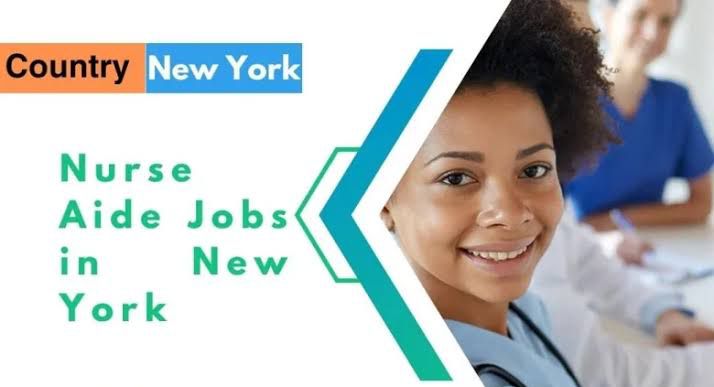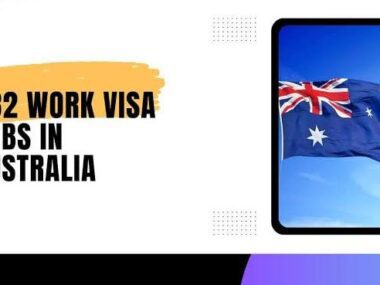New York offers nurses exciting career opportunities and a vibrant lifestyle, but obtaining a work visa can seem daunting. We’ll break down everything you need to know about nurse sponsorship jobs in New York that can help smooth your transition.
Why New York Needs International Nurses
New York has an aging population and the demand for healthcare continues rising each year. At the same time, the number of nurses graduating from programs has declined, leading to chronic short-staffing at medical centers across the state. It’s estimated that by 2024, New York will face a shortage of over 10,000 nurses.[i] While domestic recruitment efforts are ongoing, international recruitment provides an important avenue to fill vacant positions. Hospitals value the diverse perspectives and cultural competencies that internationally educated nurses can bring. With the right qualifications and preparation, you have a real chance of landing one of these sought-after sponsored roles.
Qualifying for a Nurse Visa Sponsorship
The first step is ensuring you meet the basic eligibility requirements for a nurse visa sponsorship. The main visa option open to internationally educated nurses seeking to work in the U.S. are:
H-1B Visa
The H-1B visa is for skilled foreign workers in specialty occupations such as nursing. To qualify, you’ll need:
- A bachelor’s in nursing or a relevant field from an accredited school.
- A valid nursing license from your home country and evidence you’ve passed the NCLEX-RN exam (more on licensing later).
- A guaranteed full-time job offer from a U.S. employer sponsoring your visa.
TN Visa
The TN visa is a special category for Canadian and Mexican professionals under NAFTA. As a nurse, you’ll need:
- A nursing degree or diploma from a post-secondary academic institution.
- Valid licensing as a Registered Nurse in Canada or Mexico.
- A job offer to work as a registered nurse in the U.S.
Keep in mind visa requirements may change by 2024. Stay on top of any policy or eligibility updates from the Department of Homeland Security. With the right credentials early, you can position yourself as a top visa candidate.
Making Your CV Stand Out
To get a nursing job offer and sponsorship, your resume needs to captivate recruiters. Emphasize relevant certifications, continuing education, publications, research projects – anything showing an ongoing commitment to the profession. Highlight any experience in specialty areas (oncology, pediatrics, wound care, etc.) that New York hospitals typically need.
Describe responsibilities and achievements in previous nursing roles in detail using powerful action verbs. Quantify your impact whenever possible with metrics and statistics. Show you’re a creative problem-solver who improves patient outcomes. Emphasize strong communication, leadership, and language skills. Research what each employer values most to tailor your resume accordingly.
Provide references from past medical directors or managers who can vouch for your clinical excellence and character. Ask them to elaborate on your strengths when American recruiters do background checks. Consider pursuing additional certification in fields like critical care or emergency nursing to differentiate yourself. A polished profile increases your chances of standing out from other applicants.
Mastering the required exams
All internationally educated nurses seeking U.S. licensure must pass the NCLEX-RN exam. While challenging, thousands of international nurses have cleared this hurdle. Here are some essential tips:
- Start studying for the NCLEX at least 6-12 months in advance. Content focuses on adult medical/surgical, obstetrics, pediatrics, and mental health nursing.
- Use a comprehensive NCLEX review program covering all test categories and providing thousands of practice questions. Archers, UWorld, and Hurst are popular options.
- Take a live online review course if possible for structure, guidance, and topic discussions. Many schools offer virtual classes internationally.
- Practice 50+ questions per day in an NCLEX style format – focusing on Mastering one topic at a time rather than attempting full tests. Review rationales thoroughly.
- Download the NCLEX Client Application from ncsbn.org and use their free practice tests to simulate conditions. Familiarize yourself with functionality.
- Stay positive during preparation. Many nurses say visualization and positive self-talk helped reduce stress on test day. With diligent studying, you can achieve a passing score.
Clearing the NCLEX opens the door to nursing opportunities across America. By starting early and allowing ample time to prepare methodically, you maximize your potential for success.
Obtaining State Licensure
Once you have a job offer and NCLEX results, the next step is obtaining a nursing license from your destination state. New York strictly requires new nurses to hold an unencumbered, valid, and current license to practice.
The New York State Education Department’s Office of the Professions handles all nursing licensure applications. You’ll need to submit:
- NCLEX exam results. The official electronic transcript must be sent directly from NCSBN.
- Official nursing education transcripts sent directly to NY from your university.
- Verification of any other licenses held sent directly from each state agency.
- Completed application, forms and processing fees. You can submit it online or by mail.
Their Nursing website details full requirements which may include English proficiency examinations depending on your country of education. Processing can take 3-6 months so apply as soon as NCLEX results are available. Keep all documentation updated to avoid delays.
Networking for Job Leads
Reaching out to your school alumni network and international professional organizations like the International Council of Nurses can introduce you to recruiters. Consider attending nursing conferences in New York to make valuable in-person connections.
Search LinkedIn for recruitment managers at desired hospitals and request informational phone calls to learn more about their needs and application processes. Following company pages on Facebook and Twitter alerts you to upcoming job postings and deadlines too.
Sometimes nursing agencies specializing in international placement can help match candidates to open positions. However, be wary of any company requesting large upfront fees for intangible “services” before a job offer. Reputable recruiters only get paid after securing employment.
Ask your professors and mentors for letters of reference you can send along with applications. Previous graduates working in New York may hear of roles through their networks too. With strategic networking, insider knowledge can give your candidacy an edge.
Strengthening your Nursing Skills
Solid clinical abilities remain key to standing out. Consider pursuing additional certifications that complement New York’s specialized healthcare environment, such as:
- Core Nurses Training in Critical Care
- Advanced Cardiac Life Support certification
- Emergency Nursing Certification
- Neonatal Resuscitation Program certification
- Gerontology Nursing or Oncology Nursing certification
Enrol in refresher courses through your state nursing association if it’s been awhile since direct patient care work. Many U.S. hospitals may require references from recent clinical supervisors to validate current competency.
Gaining extra skills through volunteer work is another plus. See if any New York medical missions need global health nurses, or help with local community health initiatives to boost experience. Performing to high standards underscores your commitment to the job.
Language and Cultural Preparation
Solid English communication remains vital in American nursing. Practice by reading specialist nursing journals, watching medical documentaries, and taking online CE courses in English.
For nurses with Customer Service skills, roles like Clinical Liaison Nurse may be a good fit for supporting non-English speaking patients and their families.
Understand U.S. cultural and regulatory differences in patient privacy (HIPAA), informed consent, and “do not resuscitate” directives too through supplemental learning. Be respectful of diversity and able to navigate complex social situations calmly.
Consider joining groups like InterNations to make international friends in New York for advice, conversation practice, and potential housing leads post-employment too. Connecting to the local community eases your transition.
Securing Housing
Coming from abroad adds housing search hurdles, so start early. Look at company-subsidized apartments near popular hospitals if available. Otherwise, trusted agencies like HelloHomesUSA can help locate rental properties with furnished short-term housing options.
Rural towns outside the city like Saugerties offer more affordable apartments near medical centers in Kingston or Hudson Valley areas too. Subletting short-term until establishing credit lets you reserve housing before arriving.
Save housing costs by collaborating with fellow nurse immigrants through platforms such as HealthcareLodgingUSA. Don’t assume higher salaries mean affordability – research typical rents and budgets carefully. Temporary corporate housing for newcomers removes initial stress.
Maximizing your Visa Process
Follow instructions meticulously to avoid Request For Evidence delays. Submit clean, high-quality documents without mistakes. Pay fees using the correct payment method and attach mandatory ID photos as specified.
Respond promptly to any USCIS follow-up questions to maintain case momentum. Accepting a job far in advance gives leeway for unforeseen processing issues rather than rushing with a nearing start date.
If needed, consider scheduling an Infopass appointment at your local USCIS field office to review your application in person. A legal immigration attorney may also help streamline complex cases. However, for straightforward nurse visa sponsorship applications, it’s usually not essential to hire outside legal representation.






